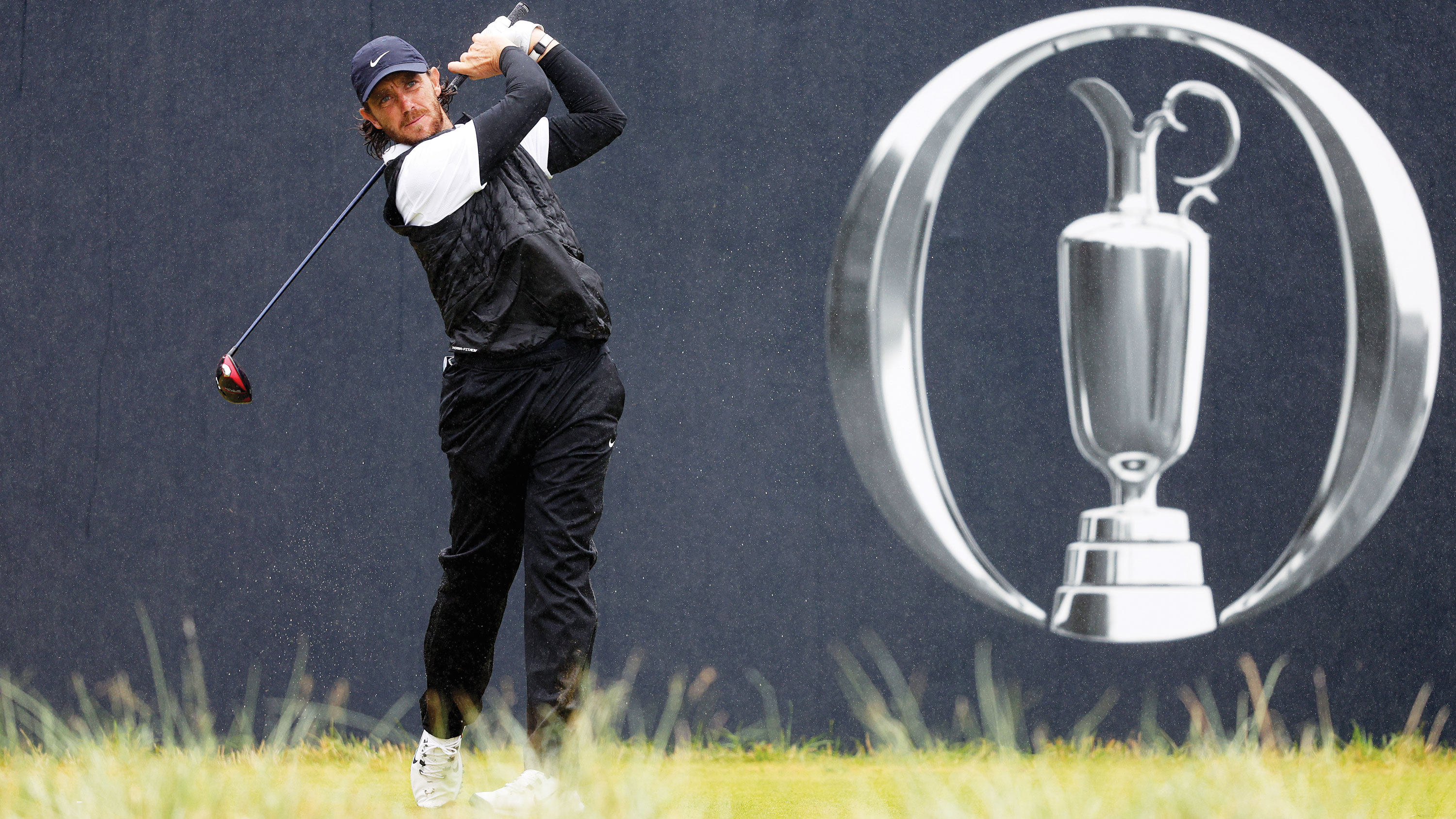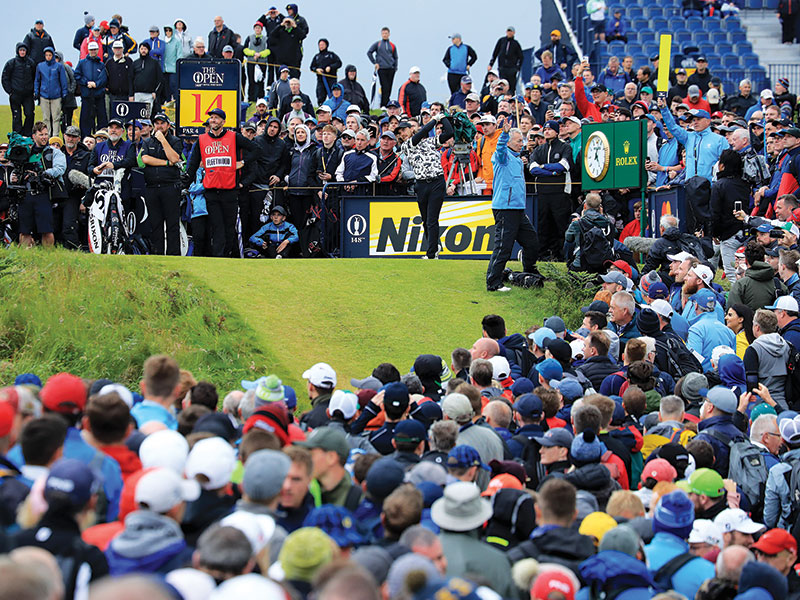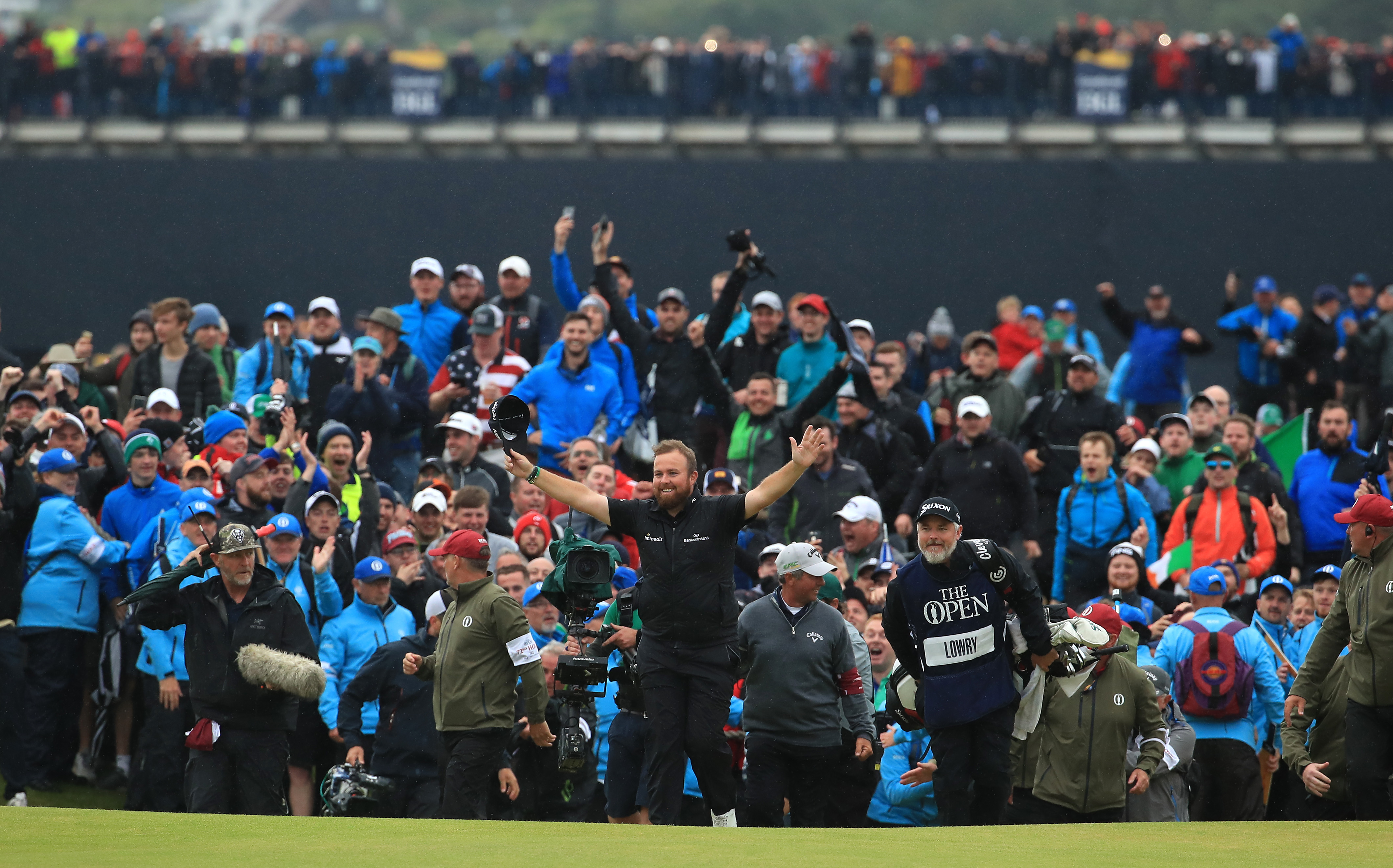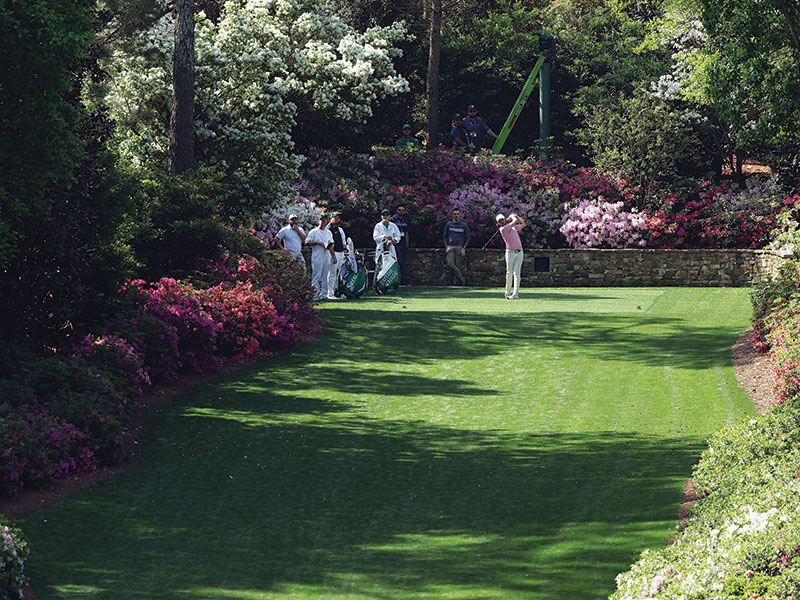
Tommy Fleetwood once told the Open Championship podcast that if he lifted the Claret Jug he would be happy never to hit a golf ball again. But he admits that is just not going to happen, although the Claret Jug part may well do, of course, because his Open record suggests there is a very strong possibility he will be acclaimed as the Champion Golfer of the Year before too long.
It could easily happen at Royal Troon this year, given that Fleetwood’s last four Open starts have included a runner-up finish, a share of 4th and a tie for 10th at Royal Liverpool last year. You can also throw in a top 12 at Carnoustie six years ago to underline the Southport star’s love of links golf, an environment he was brought up in just down the road from Royal Birkdale. So it’s no wonder Fleetwood, 33, is widely regarded as an Open winner-in-waiting.
It was the part about being happy never to hit a golf ball again – if he could just sit at home and stare at the Claret Jug whenever he got the urge to head back onto a golf course – where he needed to put the record straight.
“I don’t know why I said that bit,” Fleetwood grins, “because I really can’t imagine a life without playing golf, even though it’s certainly not the only important thing in my life. I can say straight off that family means more to me than anything.
“It’s just one of those things you say, isn’t it? You know, when someone asks would you be happy never to play again if it meant you won The Open, your first instinct is always going to be – right, where do I sign the necessary forms?
“But in reality I intend to play golf for as long as I can still pick up a club. I’ve dreamed of winning an Open since I was about five years old, and those dreams usually had me coming back as defending champion and winning it again.
“Do I think I have it in me to win The Open? Absolutely. You don’t go as close as I have without being made of the right stuff. And if you can win one, why not two? Or more.
“Of course, having the game and the mentality to win doesn’t mean it’s necessarily going to happen, because there are so many other factors involved.”

Agonising near miss
Fleetwood goes on to discuss exactly what cards need to fall your way when it comes to landing one of the game’s big prizes. You can have the week of your life, but sometimes it’s not good enough.
“Just for starters you can list the need to peak at exactly the right time, whether the course is a good fit for your game, the weather – definitely the weather – and running into someone who has the week of their life, like I did when I finished 2nd to Shane Lowry at Portrush,” he says.
“It almost seemed to be pre-ordained that Shane would win that week, especially after Rory [McIlroy] missed the cut. I played great golf that week, but I ran into a wrecking ball in Shane. As much as I was gutted at not winning, I had to admit that he was a worthy winner, and a really fitting one considering it was the first time The Open had gone back to Northern Ireland in almost 70 years.
“But I didn’t feel that way at the time. I couldn’t bear to watch the film of Portrush for ages after it finished. It was only when the Covid lockdown came along that I sat down and watched the footage with the kids.
“There were so many positives to take that I told myself I should never be so hard on myself again. I gave it my best shot, and it just wasn’t meant to be.”

The rough with the smooth
Fleetwood is understandably proud of his career so far. He’s won seven times on the DP World Tour, starred in multiple Ryder Cups and finished in the top-five in all four Majors. He’s also one of the hardest workers on tour, and he’s been around the block enough times to have picked up a healthy dose of perspective. Indeed, he has learned to accept that when you’re struggling, things are never usually as bad as they seem. “I work incredibly hard because I’m driven by the desire to be as successful as my talent will allow,” he explains. “And I’m one of those guys who has to keep working, because great golf doesn’t come that easily to me.
“I had some really rough times early in my career, and coming through those has made me realise things usually aren’t as bad as they appear. A good example of that was when I had a bad spell during the Florida swing – and in particular when I shot a second-round 80 at the Arnold Palmer Invitational and missed the cut in cringeworthy fashion.
“The low point was obviously taking a ten at the par-5 6th. The background to that is that I had been fighting a left miss for a while, but kept trying to tell myself I would figure it out – which obviously proved a bit optimistic! With water running the length of the hole down the left, all the way to the green, that is the worst possible place to start doubting yourself.
“But it’s difficult to blot out the danger when you know you’ve got that left miss going. It all unravelled pretty quickly after the first ball ended up in the lake. We’ve seen players win with doubles and even triples on their cards. But a quintuple? I don’t think so.”
While it’s obviously a painful memory to look back on, Fleetwood is able to recall the moment with a sense of perspective. Plus, it led to him taking serious strides to address the problem, which ultimately put him on the path to improvement.
“It sounds awful and it was an absolute shocker, but I don’t have too many tens, thankfully, and it’s not like I’d suddenly become a weekend hacker,” he says. “I made an eagle and a couple of birdies on the back nine that day. But there were three bogeys as well, and I knew I couldn’t play down the problem any more. Your pride is hurt, but only for a while. It happens. You can’t afford to dwell on it. It’s a really bad day at a bad time, but it didn’t leave any scars.”

Turning things around
“I got that round out of the way, rang my coach, Butch Harmon, and had a long session with him,” Fleetwood explains. “We looked at my swing, and it just felt wrong. Butch suggested a couple of tweaks, and I started practising. Hard. I honestly think what happened at Bay Hill was an important lesson. If things go wrong, take your punishment and don’t let it spiral out of control, which is what was happening to me. And don’t wait to fix something – do it now.
“As it turned out, that round at Bay Hill was a bit of a watershed for me. We got a few things sorted out and after a top ten in San Antonio the week before The Masters, I knew my game was turning round.
“Confidence is such a fickle thing, but I arrived in Augusta with plenty of it. The result shows it was justified. A top-three finish is brilliant, even if I was never really involved in the fight for the Green Jacket.
“And it was a timely reminder that you mustn’t beat yourself. One bad round, one bad tournament – or even two or three bad results – won’t make you a bad player, but it’s still better to turn up to Majors happy with your game rather than looking for solutions!”








